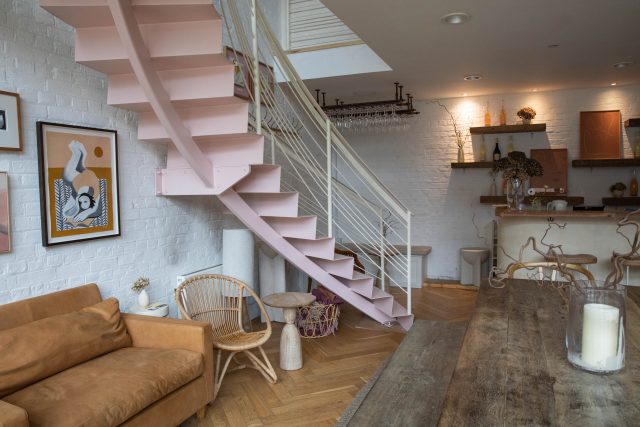This website uses cookies so that we can provide you with the best user experience possible. Cookie information is stored in your browser and performs functions such as recognising you when you return to our website and helping our team to understand which sections of the website you find most interesting and useful.
Is South Korea the perfect market for up-and-coming wine brands?
UK-based wine brand Amie, founded by couple Abbie Roden and Will Sandbach, has taken its first step in international expansion with the launch of a new wine bar in Seoul, South Korea, bypassing the “preconceptions” of more mature markets when it comes to young wine brands.

The husband and wife team launched Amie as a direct-to-consumer wine brand three years ago during the Covid-19 pandemic.”We wanted to do something a bit different with quite minimalist design, and we knew we could source good wines,” Sandbach tells the drinks business.
The co-founder initially quit his job in commercial real estate to start a wine tourism business two months before the outbreak of the Covid-19 pandemic, so “pivoted quite quickly”.”I think it’s worked out for the best,” he jokes.
Amie has experienced significant growth since its inception, and Roden and Sandbach have extended the range from one rosé to six different wines. The pair are also keen on exports, with established importers in Australia, Norway and Singapore, and plans to launch in the US in July.
The brand established its Amie Wine Studio in Belgravia, London last summer, a move which was “slightly accidental”, Sandbach says, originally intended as a three month pop-up but for which the couple have now signed a long lease.

Now, Amie is launching a second physical space in the South Korean capital of Seoul, its biggest export market. Sandbach believes that Korean consumers are more open to up-and-coming wine brands than more mature and established wine markets, making it the perfect place for expansion.
“Seoul is an affluent place but slightly newer in terms of the wine market,” he says, “they haven’t got some of the preconceptions of other countries.”
This is key for a wine brand like Amie. “We are a brand so we haven’t got that 200-year family story of owning a chateau in the South of France,” Sandbach says, meaning its more a question of “storytelling” about the brand and its aesthetic than about a long history.
Seoul therefore creates a new opportunity for young wine brands to grow alongside demand, as awareness and education rise. “Some people are learning about wine more and I think they’re more open to brands as well. That’s something we’re leaning heavily on,” he says.
Amie continues to grow in the South Korean market. The brand is set to produce 400,000 bottles this year, a third of which will be sold in export markets, and South Korea makes up over half of sales outside the UK. Having a physical space will aid this growth further. “The Amie Wine Studio is a hub people can go to in Seoul. It’s good in terms of brand awareness for us in its own right, like a sort of permanent pop-up,” Sandbach explains.
Amie is hosting its opening party this week in Seoul, and will trial a new rosé cremant in the South Korean market before launching it in the UK.

